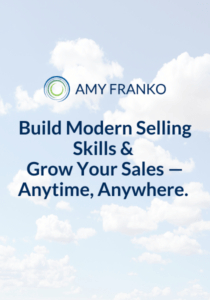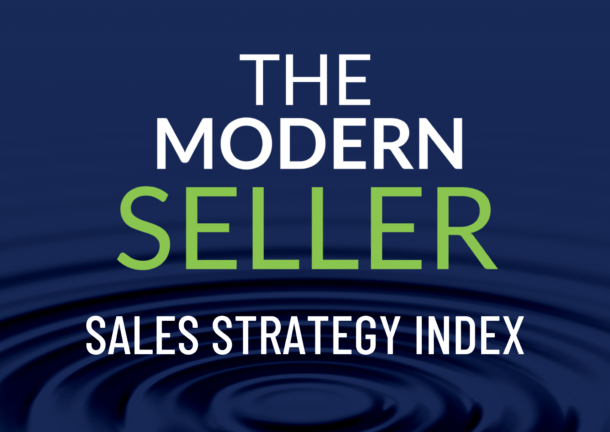"*" indicates required fields
How fast you bounce back from adversity depends on a growth mindset.
There’s a quote I love from Sir Richard Branson, “business opportunities are like buses, there’s always another one coming.”
Whenever I hear or see that quote, I think of when I lost a big sales opportunity.
It was one of those opportunities where every sign was positive. One of those opportunities with great customer momentum; they loved my approach and the solution I had to offer. This was high value in terms of the type of work, the deal size, and the customer relationship – it would’ve made a big difference to my year. You know those opportunities.
The scheduled follow-up call was simply a formality in moving forward. I was excited to take this call!
A short seven minutes later, the call was over and I had lost to a competitor. Why did I lose? It came down to one area where they perceived the competitor to have a more compelling expertise, and they felt more comfortable with that element of the solution. One thing. Ouch. That stings in so many ways. I felt like the bus had passed me by, and I missed it by a few seconds.
That was a Thursday morning.
By Friday morning, the sting was (mostly) gone. The lessons for next time taken, the relationships still strong (we’re still being added to their approved solution provider list), and forward momentum to the next opportunity.
In years past, I wouldn’t have recovered from that so quickly. I would’ve thought about it for months, dissected every little detail, and stayed in self-criticism mode for much longer. So how have I learned to handle this type of challenge and move forward?
Well, it’s the one tool that will serve you better than any, especially in high-value, significant sales opportunities. That tool is the growth mindset, and it sets the stage for every activity, big or small, that we undertake on the path to sales success.
A Growth Mindset Matters in Sales
A large body of mindset research, and specifically the concepts of fixed and growth mindsets, are the work of Stanford psychologist Carol Dweck. At a basic level, what we deeply believe about ourselves and how we view ourselves has a tremendous capacity to write the pages of our success. Those who embrace a growth mindset tend to believe that a person’s intelligence has the capacity to grow, and therefore view experiences, feedback, and challenges as learning opportunities on the path to mastery. They don’t view them as failure, or as an indication that they aren’t smart. Those with a growth mindset are more likely to take risks, learn more, and develop resilience in the face of challenges or negative outcomes. In other words, they aren’t defined by the outcomes.
Those who tend toward a fixed mindset take the opposite view, and therefore are often less willing to take on new challenges for fear of looking less-than-intelligent to the outside world. Because they see challenges and obstacles as things to be feared and avoided, they will steer clear of risks. Anything short of the “right answer” is a failure. Outcomes define how they see themselves, and it becomes challenging to learn from those experiences or develop the resilience necessary to move forward.
To be fair, we usually aren’t just one or the other, but we fall on a spectrum that includes both mindsets. In Dweck’s own learnings, it’s important to “acknowledge that we’re all a mixture of fixed and growth mindsets, we will probably always be, and if we want to move closer to a growth mindset in our thoughts and practices, we need to stay in touch with our fixed mindset thoughts and deeds.”
Practical Ways to Cultivate a Growth Mindset
According to research by Scripted, 44 percent of salespeople give up after one follow-up. Just one! In fact, the average sales person only makes two follow-up attempts to reach a prospect, according to Sirius Decisions. That tells me we’ve got a lot of work to do in terms of mindset.
I’m sharing several of the tools and techniques that have helped me over time to spend more time in growth mindset, to remain resilient in an ever more challenging sales world, and to be ready for the next sales opportunity. To help you to decide which tools may work best for you, I’ve organized them into some key categories.
Routines
- Create a set morning and end-of-day routine. While no day is exactly the same, the one thing my days have in common is a set morning routine for reading or writing, working out, or quiet time before the day begins. At the end of the day, it’s creating my priorities for the next day and shutting down the technology.
- Invest the first part of the workday on a top priority that moves you forward, and protect your time. This tip comes from productivity expert Kevin Kruse, who interviewed over 200 ultra-productive business leaders, entrepreneurs, athletes, and students. When I accomplish this, I find myself better able to stay in the right frame of mind. When I waste time in the morning or don’t make forward progress on this one, I feel my attitude dragging and it takes significant mental and emotional effort to restore it. After a particularly rough day, I remind myself to get back at it tomorrow with something productive and meaningful first thing in the morning. For more on sales productivity, watch this webinar.
Lifelong Learning
- Identify and work from strengths. The StrengthsFinder assessment has helped me to fine tune my growth mindset by knowing what activities bring me the most energy. We each have the things that we are naturally good at; they’re energizing and effortless. When we do more of those things, our energy is elevated and sustains a positive frame of mind. Pay attention to those activities that uplift you, and the ones that drag you down. Chances are that will give you great insights into your strengths, so you can find more time to do those things.
- Invest in outside perspective. I have a professional coach, someone who not only holds me accountable to my goals and dreams, but helps me to keep perspective when things aren’t going according to plan. My coach also helps me to identify emotional triggers in challenging situations. By shining a light on why I might react the way that I do in a particular situation, I can take a step back and see what’s working and what’s not.
- Develop learning agility. Do you know someone who picks things up quickly no matter how complex the content or situation? That person is likely “learning agile,” and their brain can organize, chunk, and prioritize information in ways that help them to quickly master a subject. The good news is that learning agility can be developed, and I highly recommend Agile Selling from Jill Konrath on this topic.
The Sales Habit of Well-Being
- Find ways to incorporate meditation into your life. This is new for me, as I never really put much stock into stillness or meditation. But I’ve found that by spending just 5-10 minutes with a guided meditation, it helps me to remain more positive and more grounded. It helps me to better handle my emotional triggers and get back to a growth mindset more quickly.
- There is ample research out there supporting direct effect that sleep has on our mindset and well-being. When the brain is even moderately sleep deprived, our mental and emotional energies are negatively impacted. We’re more irritable, and less able to pull ourselves out of the funk of negative outcomes. Those who are well-rested are better able to pull themselves back to a neutral or positive state more quickly and easily.
- Like sleep and meditation, exercise actually changes the brain’s chemistry and wiring over time. Our bodies are better able the handle the stressors of daily life, and we have the physical and mental strength needed to overcome challenges and obstacles. To make this more practical for me I keep my workouts to 30 minutes, and incorporate high-intensity interval training along with strength training. I also love to get outside into nature.
- Practice self-compassion. Most sales professionals and leaders I know are driven, ambitious, and results-oriented, traits which help us to create success in a challenging field. But those same hard-driving qualities can cause us to be really tough on ourselves, especially when the outcomes aren’t what we intended. Those voices inside our heads can do more to derail us than anything else, so practicing some self-compassion goes a long way in cultivating a growth mindset. I’ve found it helpful to create a phrase or mantra that helps me to be kinder to myself, and I’ve become more aware of the words I use with myself. The kinder you are to yourself, the more you can learn to embrace learning in every opportunity, and ultimately create more success.
Outward and Inward Focus
- Do something for someone else, and get out of your own head. Focusing ourselves outward in service of others through volunteering, hand-writing those thank you notes, or doing something for someone in our network are ways to keep ourselves in the growth frame of mind.
- Practice gratitude. Conversely, taking time to reflect on what we’re grateful for in our lives is like hitting the reset button on our frame of mind. I keep a daily journal, where at the end of each day, I jot down 3-5 things I’m grateful for in that day. Another side effect of this practice is helping me to stay more aware in the present moment and actually look for the small things that make me grateful.
- Release the outcomes. This one isn’t easy, at least not for me. When we invest our time and talents into something, it’s easy (and understandable) to become attached to how it’s all going to turn out. But, as it turns out, if we release the expectations of the outcomes and instead focus on what we’re learning in the process, we actually improve our odds of getting to our desired outcomes and enjoying the journey much more.
Implement these strategies, and continue to hone your skills and take smart risks. Soon you’ll notice the difference. As Dr. Dweck said, “Success is about being your best self, not about being better than others; failure is an opportunity, not a condemnation; effort is the key to success.”
If you’re a sales leader who needs help building an effective, proven sales training strategy, let’s chat. Fill out this form, and request a free 30-minute consultation call with me.
Amy Franko helps mid-market technology and professional services organizations ignite sales, through proven sales strategy and skill development programs. Her book, The Modern Seller, is an Amazon best seller.


 Our Strategic Selling signature sales training program is now available online. This online sales learning program is ideal for professional services and B2B sales. Get started with 2 free lessons.
Our Strategic Selling signature sales training program is now available online. This online sales learning program is ideal for professional services and B2B sales. Get started with 2 free lessons.